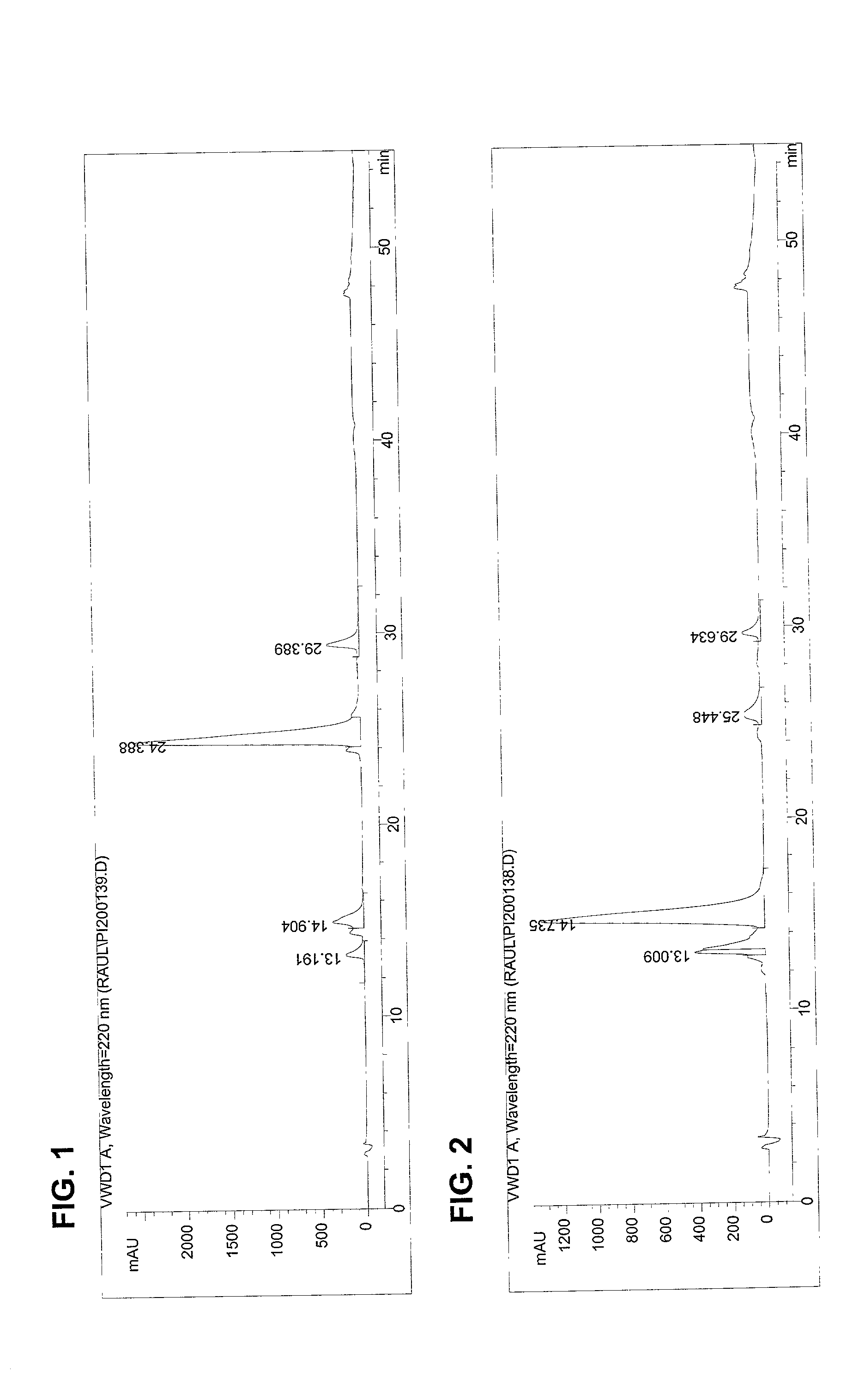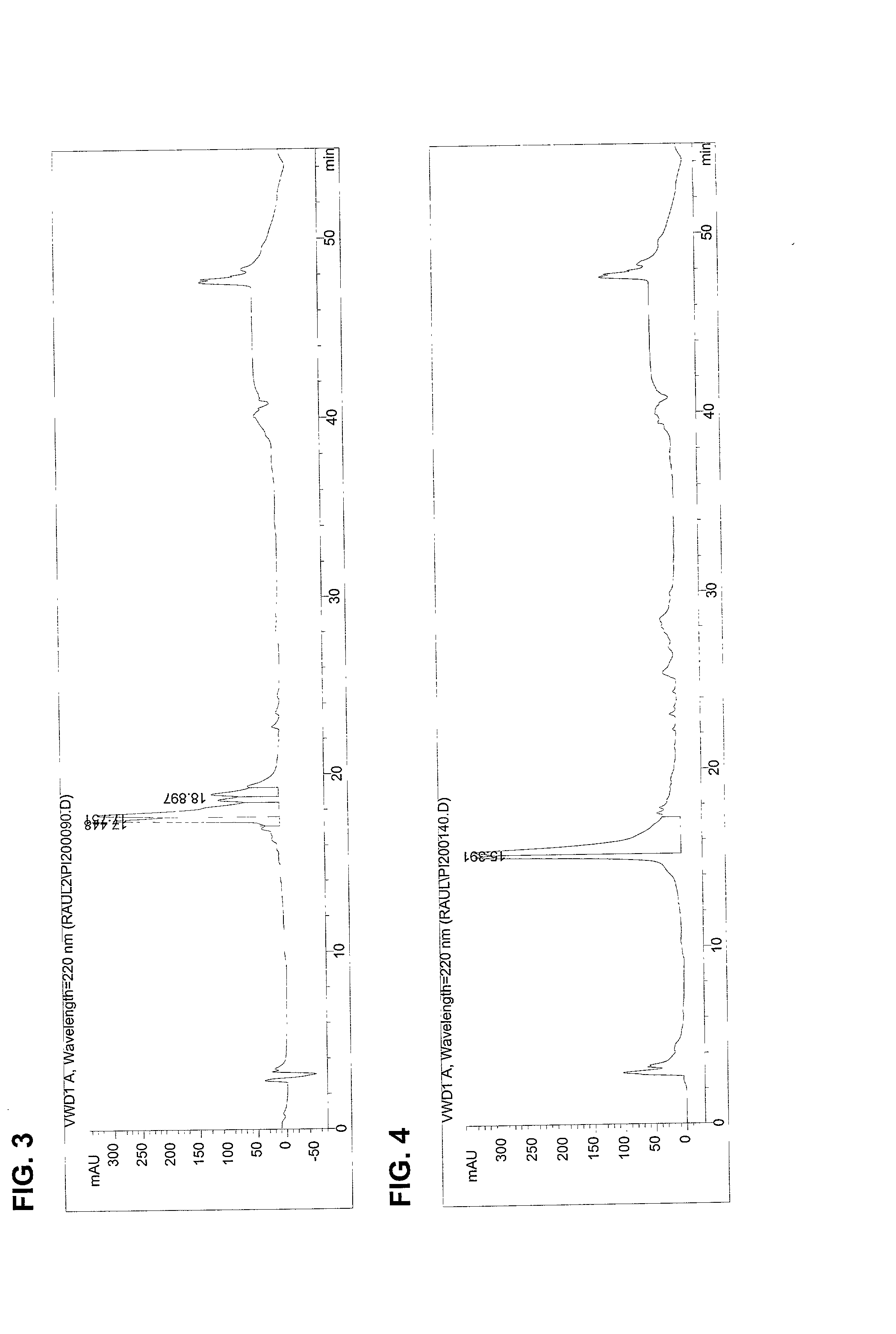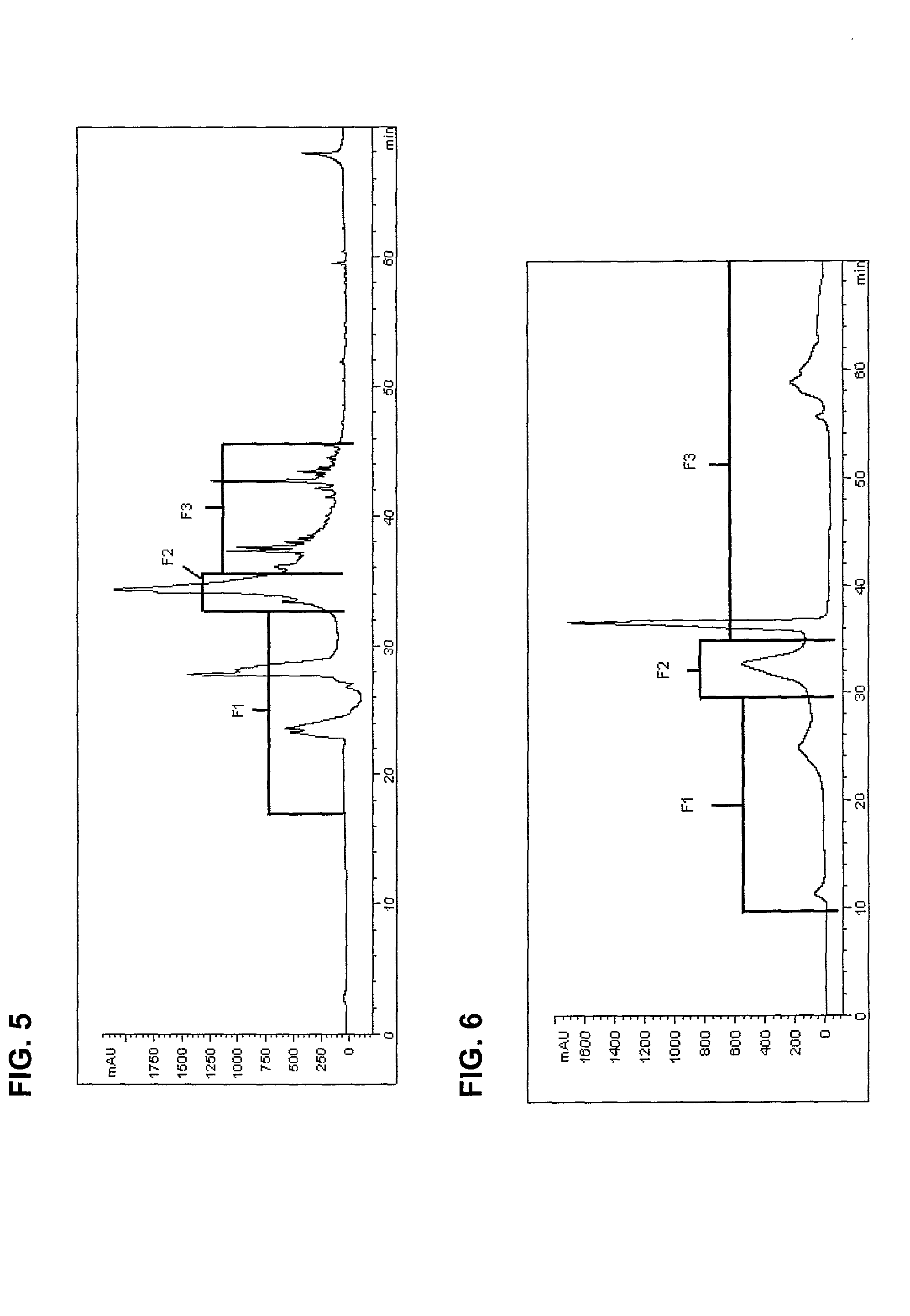Method for the elimination of kunitz and bowman-birk trypsin inhibitors and carboxypeptidase inhibitor from potato proteins
a technology of carboxypeptidase inhibitor and trypsin inhibitor, which is applied in the direction of endopeptidase, peptide source, application, etc., can solve the problems of inability to practice feasibly on a production scale, decrease in food intake, and body weight over tim
- Summary
- Abstract
- Description
- Claims
- Application Information
AI Technical Summary
Problems solved by technology
Method used
Image
Examples
experiment 1
[0083] Experiment 1
[0084] The temperature required to denature and precipitate protein impurities was first examined. A lot of potatoes was extracted and filtered using an extractant consisting of 1.0 N sodium chloride and 1.5% formic acid. This extract was filtered and aliquoted for the heat-treatment study. Each sample of the extract was placed in a test tube, and then heated to the target temperature using a constant temperature water bath. Samples were taken at times 0 minutes, 15 minutes, 30 minutes, 45 minutes and 60 minutes. The samples were immersed in an ice bath and then centrifuged in an Eppendorf 5415 centrifuge for 5 minutes at 10,000 rpm to remove precipitated material. The supernatant was analyzed using the reverse phase HPLC method described above and the Kunitz peaks were quantified. The results are reported in Table 7.
7TABLE 7 Kunitz Impurities Remaining in Solution Temperature .degree. C. Time (minutes) Kunitz.sup.1 mg / ml 70 0 0.819 70 15 0.158 70 30 0.128 70 45 0...
experiment 2
[0088] Experiment 2
[0089] Trials were conducted to determine the selection of an ultrafiltration system and operating conditions which would be effective at removing the Bowman-Birk and carboxypeptidase inhibitors without removing an excess of PI2. Three different filter types were examined, the Pall Filtron Centramate CS010C12, (Pall Corporation, East Hills, N.Y.), the Pall Filtron Maximate CS010G02, and the A / G Technology UFP-5-C-4A, (A / G Technology Corporation, Needham, Mass.). Each filter was tested under a range of conditions consistent with its specifications. All of the filters were found to be non-fouling under the tested conditions, but the Maximate filter had an average flux of 63 liters / hour / meter.sup.2, compared to 54.7 for the Centramate and 20.2 for the A / G Technology filter.
[0090] Relative recovery of the PI2 after ultrafiltration was examined. While the A / G Technology membrane is rated at a molecular cutoff of 5000 Daltons and the Pall Filtron membrane is rated at 10...
experiment 3
[0097] Experiment 3
[0098] To verify that the peak in the F2 region of FIG. 5 contains potato PI2, a sample of PI2 was obtained from Dr. Clarence Ryan at Washington State University. The sample of PI2 was prepared by Dr. Ryan's laboratory following the method described in Melville et al. The PI2 standard and a sample of the purified PI2 extract produced using the method of this specification were analyzed using the gel electrophoresis method described above. Also run on the gel were molecular weight standards, including--Lactalbumin (MW=14,400) and soybean trypsin inhibitor (MW=20,100). The PI2 standard showed a band in agreement with a band of the PI2 sample of the present invention. Moreover, there were no bands prior to the -Lactalbumin standard marker band at 14,400 Daltons. Accordingly, the gel electrophoresis results demonstrate that the F2 region of FIG. 5 includes the PI2 extracted from the potatoes.
[0099] To verify the removal of the impurities, the reverse phase HPLC method...
PUM
| Property | Measurement | Unit |
|---|---|---|
| Angle | aaaaa | aaaaa |
| Angle | aaaaa | aaaaa |
| Angle | aaaaa | aaaaa |
Abstract
Description
Claims
Application Information
 Login to View More
Login to View More - R&D
- Intellectual Property
- Life Sciences
- Materials
- Tech Scout
- Unparalleled Data Quality
- Higher Quality Content
- 60% Fewer Hallucinations
Browse by: Latest US Patents, China's latest patents, Technical Efficacy Thesaurus, Application Domain, Technology Topic, Popular Technical Reports.
© 2025 PatSnap. All rights reserved.Legal|Privacy policy|Modern Slavery Act Transparency Statement|Sitemap|About US| Contact US: help@patsnap.com



